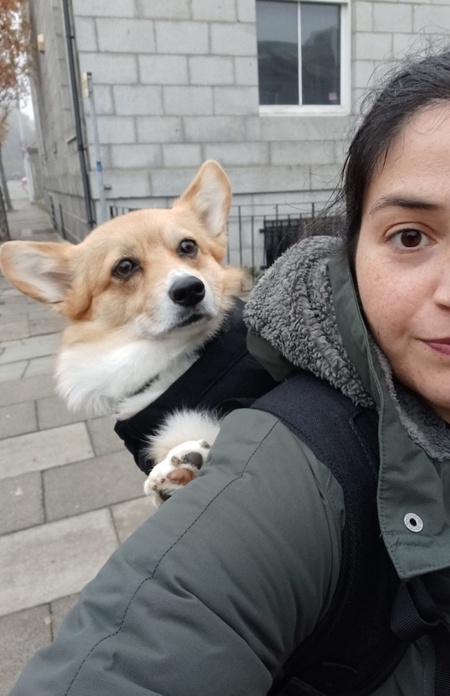Dr Francesca Farrington talks about her current research projects, what she loves most about being an academic and what her interests outside of work are in our laterst Coffee Time Series Blog.
Q: What drew you to the discipline of law?
FF: Law came as a surprise to me. I “dropped out” of music college when I was 18. Until then my life had revolved around music. So, when I left music college (after realising a deep dislike of music theory), I was somewhat untethered. At a loss, I worked (mainly as a film projectionist and stable hand) and travelled (Southeast Asia, China, and Australia) over four years. A formative experience during this time was volunteering in Indonesia in the aftermath of a devastating earthquake. During this time, I met people from all over the world and all walks of life, who had converged in that place with the sole goal of helping others in a moment of need. On my return to Ireland, I contacted the Irish Human Rights and Equality Commission, and, to my surprise, a senior staff member called me and gave me this advice: whether it was policy, practice, or research that I was interested in a Law degree was always a good place to start. And that is exactly what I did, I applied to Trinity College Dublin to study law at the age of 22. I always remind students (and friends) that there are many (often unexpected) paths in life that can bring you happiness and to never be afraid to take your time or to change direction.
Q: How did you become interested in your area of research?
FF: My area of research is law and development. During my LLM at McGill University I had the privilege of taking Prof. Nandini Ramanujam’s module on international development law. I was immediately enthralled by the connection between economics, society, politics, and law that became explicit in the study of international development. Equally, I was frustrated by the misunderstandings and assumptions about law that permeated development discourse. It became apparent that there was a real need for lawyers and legal scholars to collaborate with development-adjacent disciplines, particularly economics.
Q: Who do you admire in your field of research? (Could be Law more widely)
FF: Prof. Nandini Ramanujam and Prof. Simon Deakin. They are both brilliant scholars but also incredibly humble. Their commitment to supporting and nurturing early career researchers is particularly admirable.
Q: Would you share some insights into your current research and what makes it so important?
FF: At present my main research focus is on rule of law promotion. Rule of law promotion refers to the project, advocated by development bodies, of strengthening the rule of law to promote economic, human, and sustainable development in lower- and middle-income countries. Significant financial and human capital is expended on this project every year, yet we know relatively little about (i) what the rule of law is (ii) can it be successfully transplanted abroad (iii) how can it be transplanted and (iv) what are the broader repercussions of meddling in a country’s legal and political culture. These are all questions my research probes. Answering these questions is important to legitimate the resources directed to rule of law promotion, otherwise we might think about how to better use these resources, perhaps on providing healthcare. However, I am of the opinion that the rule of law is crucial for the equitable and efficient delivery of essential services as it promotes a trustworthy government. I am also currently an Associate on the POPBACK project which looks at rule of law backsliding in Europe. I am considering whether legal transplantation in the transitional economies of Eastern Europe after the fall of the Berlin Wall may be being “rejected” and contributing to rule of law backsliding.
Q: What aspect of your role do you enjoy the most?
FF: Definitely research! Having the opportunity to explore significant and controversial issues, contribute to knowledge in the area, and perhaps even contribute to positive change is the best part of being an academic.
Q: What achievement are you most proud of?
FF: I am probably most proud of completing my PhD at the University of Cambridge. The four years I spent in Cambridge were both personally and professionally transformative.
Q: What do you love doing in your spare time?
FF: Movies, horse riding, and reading fiction (I am also a member of the fantasy book club organised by Dr Patricia Živković). When it comes to hobbies I tend to go through phases, I’ve had a baking phase, a puzzle-making phase, and a knitting phase – often projects are left incomplete. I love being out in nature, particularly by the sea or up in the mountains. I usually take my corgi dog Honey with me (she hates on-lead walking and often ends up in her backpack: see photo for reference).



